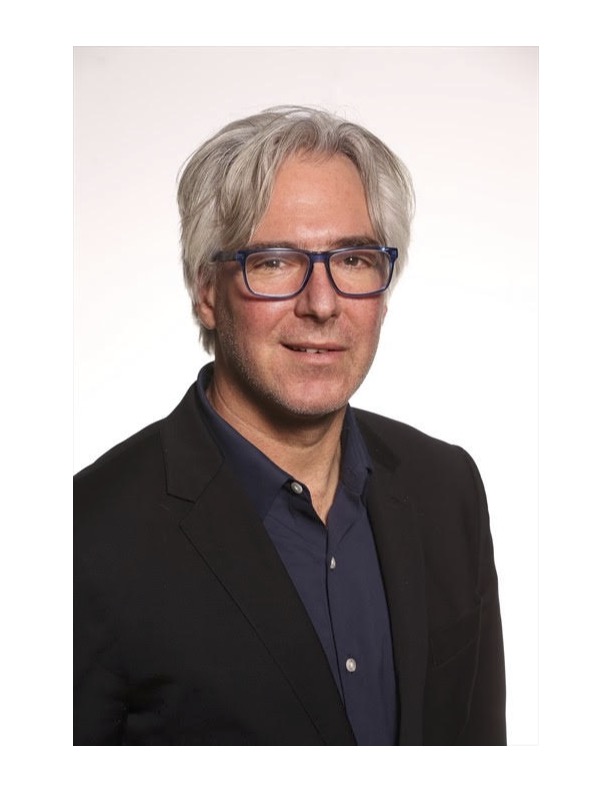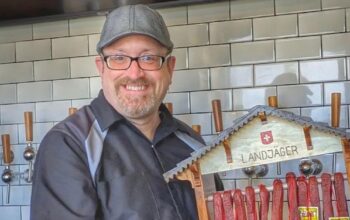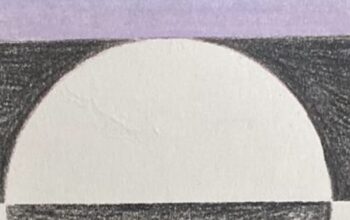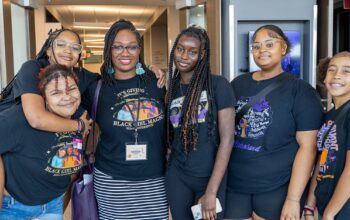Greg Steinberger sees big ideas, vibrant energy and an eagerness for change in the
Jewish community at the University of Wisconsin-Madison every day. Students come to
Steinberger, President and CEO of the UW-Hillel Foundation — an pluralistic organization
supporting Jewish life on campus — to chat about their lives, their ambitions, and to figure out how to participate in Jewish life at the university. Since being recruited from Ohio State Hillel in 1995, Steinberger has made a lasting impression on UW-Hillel and the students who come through its facilities every day. Leaving family behind when moving to college can be isolating. Jewish students are enveloped by a community at Hillel that can emulate the family traditions that comfort them. At Hillel, they find a new Jewish family.
out how to participate in Jewish life at the university. Since being recruited from Ohio State Hillel in 1995, Steinberger has made a lasting impression on UW-Hillel and the students who come through its facilities every day. Leaving family behind when moving to college can be isolating. Jewish students are enveloped by a community at Hillel that can emulate the family traditions that comfort them. At Hillel, they find a new Jewish family.
What do you think is the biggest challenge our community faces?
I think that the larger, older community wants to talk about things like, “what does the future of Jewish life look like in America? What will the vibrancy of our community be? Will people be
participatory in Jewish cultural life and religious life and educational life? And will they be recognized authentically by the larger community in which we live and seen as a unique ethnicity and identity and thrive?” I think what's on the minds of a lot of Jewish people is that they're able to distinctly and authentically maintain their history of culture, religious practice and fully be embraced and participate in a multicultural society.
What do you wish people in our community understood better?
I think that people have this really heightened worry that they're either excluded or feel
vulnerable and uncomfortable in the world. And I guess I want them to feel hopeful that it
doesn't have to be that way. There's something to be said about strength in the Jewish community and building relationships and being with people who are like minded. But there's also something to be said about: How do we really participate with people who are different than we are? Or they share the same views, but we don't really know, because we fall into these ruts where it’s hard to connect to each other? I also think that Jews in America appear not just as successful and part of white America, and that success is sort of recognized as: we've been here forever, we're not immigrants, we don't have an immigrant story. And they think that clearly, since we're successful and privileged, we aren't part of minority life or diversity life. And I want the larger world to know that we, in many cases, are all of those things. And we are distinctly unique and different, too. And we recognize when we aren't counted.
What is one change you would make if you could that would make life better for people in our community?
I think, figuring out a way for us to allow students in the Jewish community to just be who they want to be, or to make a difference. We don't have the resources to develop all those
opportunities. If I could wave my magic wand, I would like for students to be able to have more resources available to them to create programs to ubiquitously have the food they want on campus — kosher food or otherwise. I'd like to say "no" less, not that we say no a lot. I'd like to be able to give more people jobs. I would like a more knowledgeable university world. It feels like [the university] could be a little more empathetic.
What in our community gives you hope?
I feel like people have really shown up this year. I feel like people really want to show up and belong. They have 10,000 things they could choose to be doing, and they're choosing to do
something in the ark of whatever Jewish is. I think that’s really amazing. I talked about elections, and six, eight, 10 years ago, we heard people telling us about how they weren't happy with everything, so they were sitting it out. And I don't hear that the same way. I feel like people are deciding that they need to show up. Another thing that gives me hope is that I get to work with young people. So there's always something vibrant about watching a person have their own “aha” moments and figure out what they want to do. I feel like we are seeing people who willingly desire to participate in the various kinds of ways we do things. And there's not just one way to do them. And that is, I think, exciting and hopeful.




